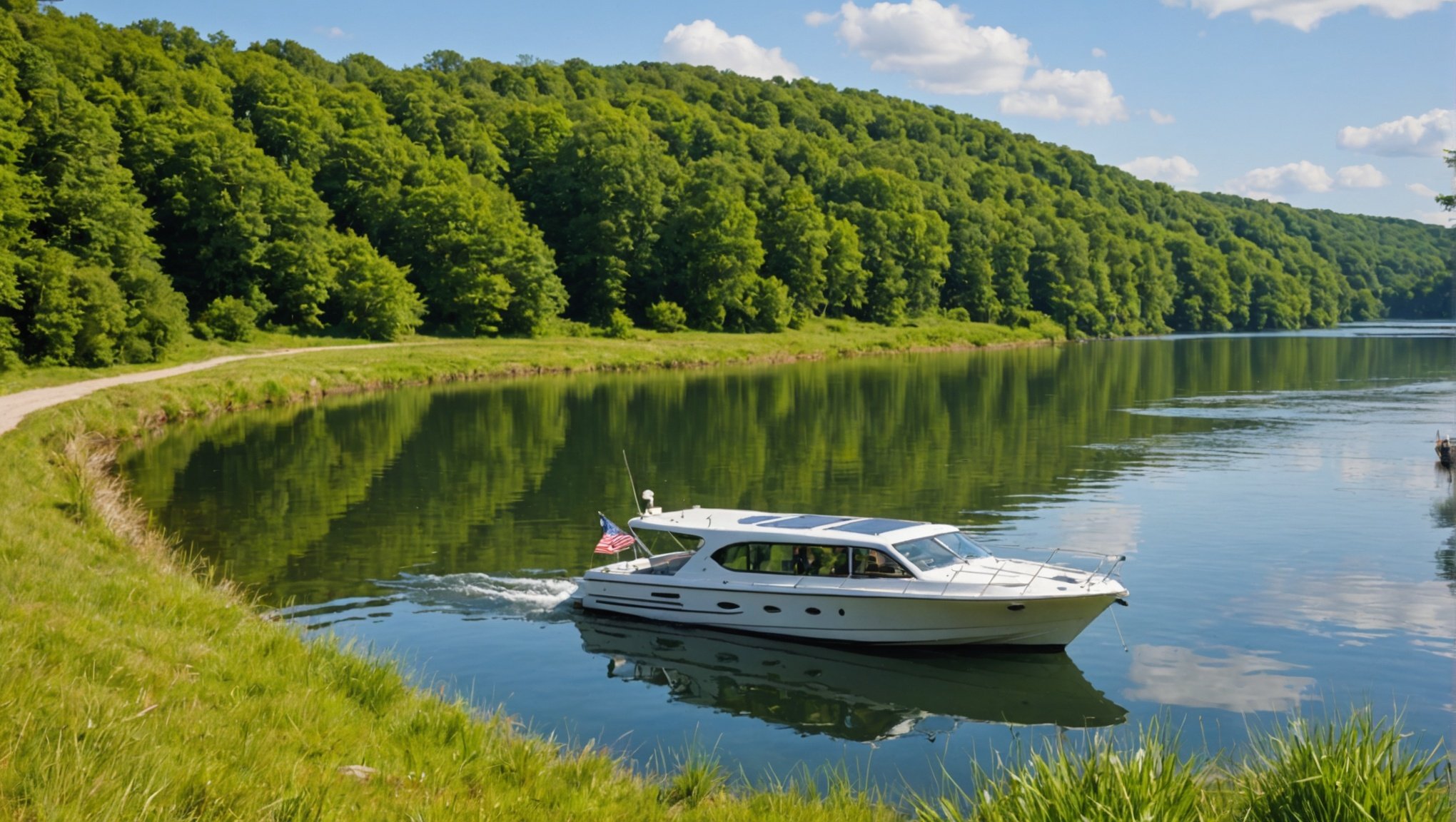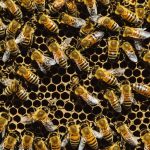Eco-friendly boating is essential for protecting the delicate ecosystems of UK freshwater environments. Boat owners have a unique role in minimizing their impact on aquatic life. Implementing sustainable practices can ensure that these beautiful habitats thrive for generations to come. From choosing eco-friendly products to adopting mindful boating habits, you can make a significant difference. Discover actionable strategies to safeguard both our waters and the vibrant life they support.
Understanding the Impact of Boating on Freshwater Ecosystems
Freshwater ecosystems are vital to our planet’s health, providing essential services such as water purification, habitat for diverse species, and resources for human use. However, the environmental impact of boating is a growing concern. Boating can significantly disrupt these ecosystems through pollution and habitat degradation.
Sujet a lire : Top Strategies for Promoting Wildlife-Friendly Farming in the UK Uplands
Boating activities often introduce pollutants like oil, fuel, and sewage into water bodies. These substances can degrade water quality, affecting both aquatic life and human health. For instance, the discharge of untreated sewage from boats can lead to nutrient overload, causing algal blooms that deplete oxygen levels, harming fish and other aquatic organisms.
Furthermore, the physical presence of boats can damage habitats. Propeller wash and hull movement can disturb the sediment, affecting plant life and the organisms that rely on them. In the UK, studies have shown that boating is a notable contributor to habitat disruption in freshwater environments.
En parallèle : The Impact of the UK”s Neonicotinoid Ban on Bee Populations and Agricultural Practices
Statistics reveal that boating activities account for a significant percentage of pollution incidents reported in UK freshwater bodies. Understanding these impacts is crucial for developing strategies to mitigate the environmental effects of boating, ensuring the preservation of these vital ecosystems for future generations.
Best Practices for Reducing Pollution While Boating
To address pollution reduction in boating, several best practices can be implemented. These techniques focus on minimizing environmental harm and promoting sustainable boating.
Techniques for Minimizing Fuel Spills and Emissions
Reducing fuel spills and emissions is crucial. Boaters should ensure proper fuel handling by using spill-proof containers and avoiding overfilling tanks. Regularly inspecting and maintaining fuel lines and tanks can prevent leaks. Opting for a four-stroke engine over a two-stroke engine can significantly decrease emissions, as four-stroke engines are more fuel-efficient and produce fewer pollutants.
Selecting Eco-Friendly Boat Cleaning Products
Choosing environmentally friendly cleaning products is another effective strategy. Many conventional cleaning agents contain harmful chemicals that can leach into the water. Instead, opt for biodegradable and non-toxic cleaners. These products are designed to break down naturally, reducing their impact on aquatic ecosystems.
Importance of Regular Maintenance to Prevent Leaks
Regular maintenance is vital to prevent leaks and ensure the boat operates efficiently. Routine checks of the engine, hull, and other systems can identify potential issues before they cause significant environmental damage. By adopting these practices, boaters can contribute to the preservation of freshwater ecosystems while enjoying their recreational activities.
Sustainable Maintenance Strategies for Boat Owners
Incorporating sustainable boat maintenance practices is essential for reducing environmental impact. Selecting eco-conscious materials and products for boat upkeep can make a significant difference. For instance, using biodegradable lubricants and environmentally friendly antifouling paints helps minimise harmful chemical leaching into water bodies. These choices not only protect aquatic ecosystems but also enhance the longevity of your vessel.
Energy-efficient boating practices are equally crucial. Implementing energy-saving measures, such as installing solar panels to power onboard electronics, reduces reliance on non-renewable energy sources. Additionally, maintaining optimal speed and avoiding rapid acceleration can conserve fuel and decrease emissions. Simple actions like switching to LED lighting can further improve energy efficiency.
Real-world examples illustrate the effectiveness of these strategies. A case study of a marina in the Lake District adopted sustainable maintenance, resulting in a 30% reduction in fuel consumption and a significant decrease in pollution levels. Their success highlights the practical benefits of eco-friendly practices for both the environment and boat owners.
By embracing these sustainable maintenance strategies, boaters can play a pivotal role in preserving freshwater ecosystems while enjoying their time on the water.
Responsible Waste Disposal and Management
Effective waste disposal in boating is crucial for protecting freshwater ecosystems. Boaters generate various types of waste, including plastic, food scraps, and hazardous materials like batteries and oil. Proper management of these wastes is essential to prevent pollution.
Understanding the Types of Waste Generated While Boating
Boaters encounter several waste types. Plastic waste from packaging and single-use items is common, contributing significantly to marine pollution. Organic waste, such as food scraps, can lead to nutrient imbalances in water bodies. Additionally, hazardous waste like used oil and batteries poses severe environmental risks if not handled correctly.
Best Practices for Waste Disposal and Recycling on the Water
Adopting best practices ensures responsible waste disposal. Boaters should separate waste, using designated containers for recyclables and hazardous materials. Recycling plastic and metal items reduces landfill contributions. For organic waste, consider composting onshore. Safe disposal of hazardous waste, such as taking used oil to collection facilities, is vital.
Resources for Finding Proper Disposal Facilities in the UK
The UK offers various resources for boaters seeking waste disposal facilities. Marinas and local councils often provide information on waste management services. Online platforms can also guide boaters to nearby recycling centres and hazardous waste collection points, ensuring eco-friendly practices are accessible.
Navigating UK Regulations and Guidelines
Understanding and adhering to UK Boating Regulations is essential for environmentally responsible boating. These regulations are designed to protect freshwater ecosystems by controlling pollution and habitat disruption.
Overview of Environmental Regulations Affecting Boaters
UK regulations cover various aspects, including waste disposal, emissions, and noise control. Boaters must comply with the Clean Water Act, which mandates proper waste management to prevent pollution. Emission standards require using cleaner engines and fuels, while noise regulations aim to minimise disturbance to wildlife.
How to Stay Compliant with Local Laws
Staying compliant involves regular checks of your vessel’s equipment and ensuring all onboard systems meet legal standards. Boaters should familiarise themselves with local bylaws, which may vary by region. For example, some areas may have specific rules on speed limits or restricted zones to protect sensitive habitats.
Resources for Keeping Updated on Regulatory Changes
To remain informed, boaters can access resources such as government websites, local marina offices, and boating associations. These platforms offer updates on regulatory changes and provide guidance on compliance. Additionally, subscribing to newsletters from environmental organisations can help boaters stay aware of new initiatives and best practices.
Restoring Aquatic Habitats: How Boat Owners Can Contribute
Restoring aquatic habitats is crucial for maintaining biodiversity and ecosystem health. In the UK, habitat restoration in aquatic environments has gained momentum through various initiatives aimed at reversing damage caused by human activities. These initiatives focus on rehabilitating degraded areas, enhancing water quality, and supporting native species’ revival.
Overview of Habitat Restoration Initiatives in the UK
Numerous projects across the UK target habitat restoration in aquatic environments. These initiatives often involve collaborations between government bodies, environmental organisations, and local communities. Efforts include replanting native vegetation, removing invasive species, and improving water flow to support natural regeneration processes.
Ways Boat Owners Can Participate in Restoration Efforts
Boat owners play a pivotal role in supporting these restoration efforts. They can participate by volunteering in local projects, such as planting aquatic vegetation or monitoring water quality. Additionally, adopting sustainable boating practices, like reducing wake and avoiding sensitive areas, helps minimise further habitat disruption.
Success Stories of Community-Led Habitat Preservation
Community-led projects have demonstrated significant success in habitat restoration. For instance, a project in the Norfolk Broads involved local boaters in reed bed restoration, resulting in increased biodiversity and improved water quality. These success stories highlight the positive impact of collective action in preserving aquatic environments.
Expert Insights on Eco-Friendly Boating Practices
Gaining a deeper understanding of sustainable boating requires insights from environmental experts. These professionals emphasize the importance of adopting eco-friendly practices to preserve freshwater ecosystems. Expert advice on sustainable boating often highlights the need for education and awareness among boaters.
Interviews with Environmental Experts on Sustainable Boating
Environmental experts advocate for sustainable boating by focusing on reducing pollution and protecting aquatic habitats. They recommend using cleaner fuels and engines, which significantly lower emissions. Experts also stress the importance of regular maintenance to prevent leaks and spills, suggesting that boaters conduct routine checks on their vessels.
Case Studies Showcasing Eco-Friendly Initiatives by Boaters
Real-world examples demonstrate the effectiveness of eco-friendly boating initiatives. For instance, a community-led project in the Lake District involved boaters switching to solar-powered engines, resulting in a 40% reduction in fuel consumption. This initiative not only decreased pollution but also inspired other boaters to adopt similar practices.
Resources for Further Education on Eco-Friendly Boating Practices
To further educate themselves, boaters can access various resources, including workshops and online courses. Organisations such as the Royal Yachting Association offer training on sustainable boating techniques. These resources provide practical advice and encourage boaters to implement eco-friendly practices, ensuring the protection of freshwater ecosystems.











